Singapore’s measures against COVID-19
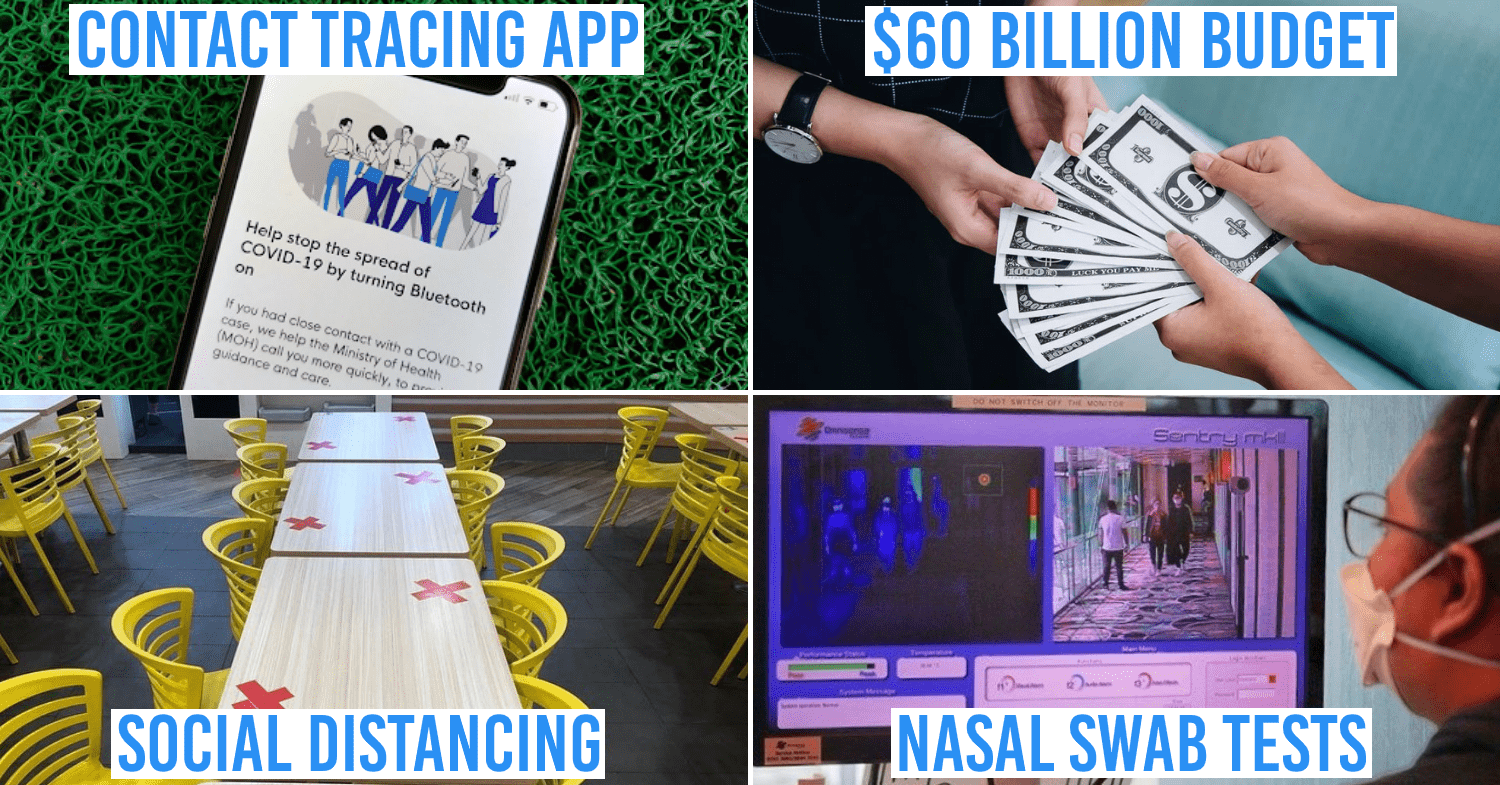 Fight against COVID-19 in Singapore
Fight against COVID-19 in Singapore
Image adapted from (clockwise from top-left): Nic Ker, Changi Airport, @tape_measures
It’s safe to say that the COVID-19 pandemic has us all pretty shook. Take a look at the number of people still clearing out supermarket shelves even when they have plenty of stock and no intention of closing down.
As the tally of COVID-19 cases continues to rise, more measures have been put in place to encourage social responsibility and ease burdens faced by many of us. Some of these measures may seem harsh but just remember that it’s all for our own good and the sooner we can defeat the virus, the sooner grocery shopping – and life – can go back to normal.
For more coronavirus-related articles:
- COVID-19 myths debunked
- Commonly asked questions about COVID-19
- How to protect yourself against COVID-19
- Fake COVID-19 news
1. TraceTogether – community-driven contact tracing app
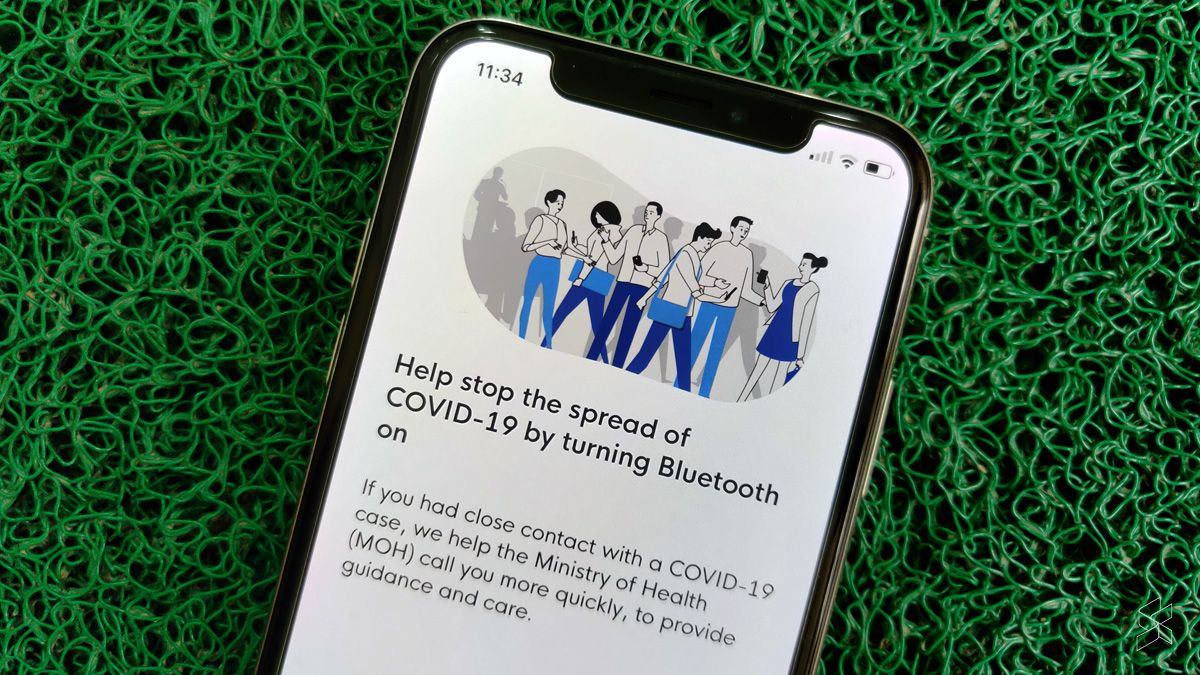
Image credit: Nic Ker
As contact tracing depends mostly on people’s memories, it may not be the most effective way to track down those who may be in close contact.
To combat this problem, Singapore was one of the first countries to develop an app for contact tracing called TraceTogether. The app works by exchanging short-distance Bluetooth signals between phones to detect other users of the app who are in close proximity.
For those who are paranoid of Big Brother monitoring them, the app doesn’t actually track your actual location. Location permissions that are given are only used to only estimate proximity to other phones. That way, those in close contact with a carrier can be traced quickly.
The app is available for download on the Apple App Store and Google Play.
2. Self-enforced lockdown
 All non-essential services like retail shopping outlets will be shut
All non-essential services like retail shopping outlets will be shut
To slow down the spread of the coronavirus, many countries have been in lockdown to restrict movement outside. Singapore however, is having a self-enforced lockdown that’s termed as a “circuit breaker”.
So while all essential services like supermarkets, clinics, hairdressers and pharmacies will still be operating, citizens are advised to not be gallivanting outside. That means no gathering at your friend’s place for game night or cafe dates with your boo.
3. Jail term and/or fines for those who breach stay-home notice and social distancing regulations
 Image credit: @tape_measures
Image credit: @tape_measures
Social distancing and social responsibility is the name of the game here. Before the start of circuit breaker measures on 7th April 2020, Singapore already had regulations where gatherings outside work and school had to be limited to fewer than 10 people. That, and a distance of 1M between each person maintained for non-transient interactions.
This still applies during the circuit breaker period and is more important now than ever to be complying with these measures. Don’t be surprised if you see safe distancing ambassadors patrolling your estate to ensure people are not out and about eating and drinking in public.
Anyone in breach of this regulation could be fined up to $10,000 and/or imprisoned for up to 6 months.
Do yourself a favor and #StayHome – there are plenty of free multiplayer online games, Youtube workout routines and things to do to keep yourself safe and occupied.
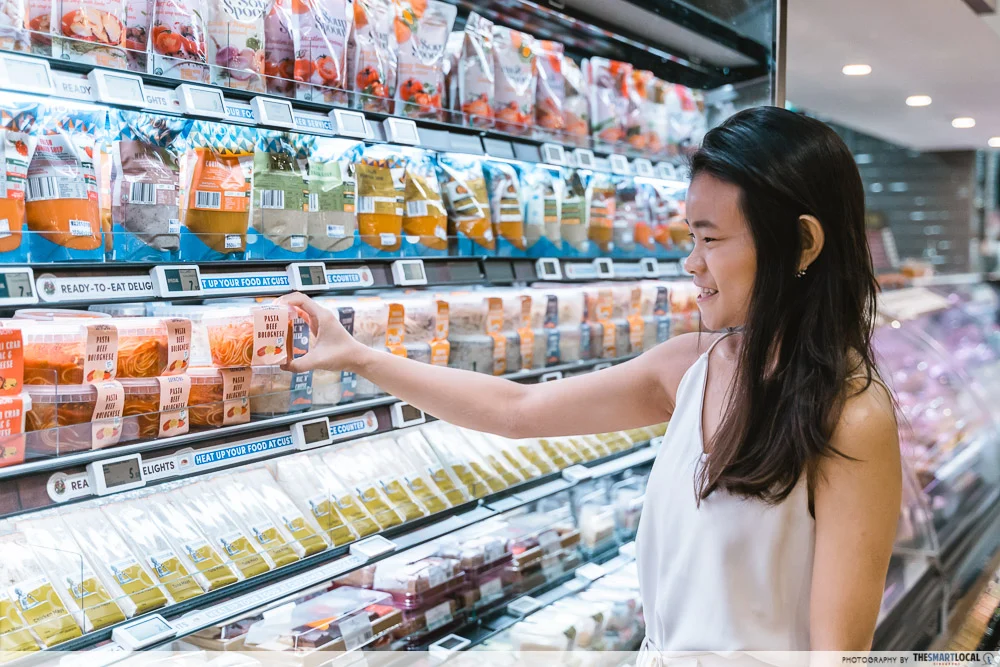 You should go out only if essential
You should go out only if essential
If a Stay Home Notice (SHN) has been issued to you, don’t take it lightly and try to leave home. Seeing as a Singaporean’s passport got cancelled by the Immigration & Checkpoints Authority (ICA) for breaching his SHN and travelling to Indonesia, we know that flouting of the rules isn’t taken lightly.
Besides having their passport cancelled, people who breach their SHN can also be prosecuted under the Infectious Diseases Act and its Regulations, and face a fine of up to S$10,000 and/or 6 months of jail.
If the travel bug won’t leave you alone, there are virtual travel experiences you can enjoy in the comforts of your home.
4. Nasal swab tests at Singapore checkpoints
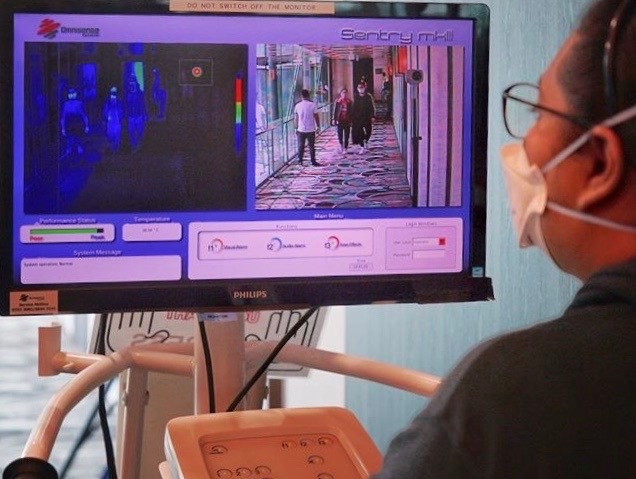
Image credit: Changi Airport
More stringent tests are underway for returning Singaporeans and long-term pass holders – be it at air, land or sea checkpoints. Travellers will first go through the usual temperature screening before those with fever and signs of respiratory illness are required to undergo a nasal swab test.
Even those who don’t meet the clinical definition of being suspect cases may be required to take the test. Look on the bright side, at least you’ll get peace of mind if you’re tested negative.
5. Free hand sanitisers & masks for all households
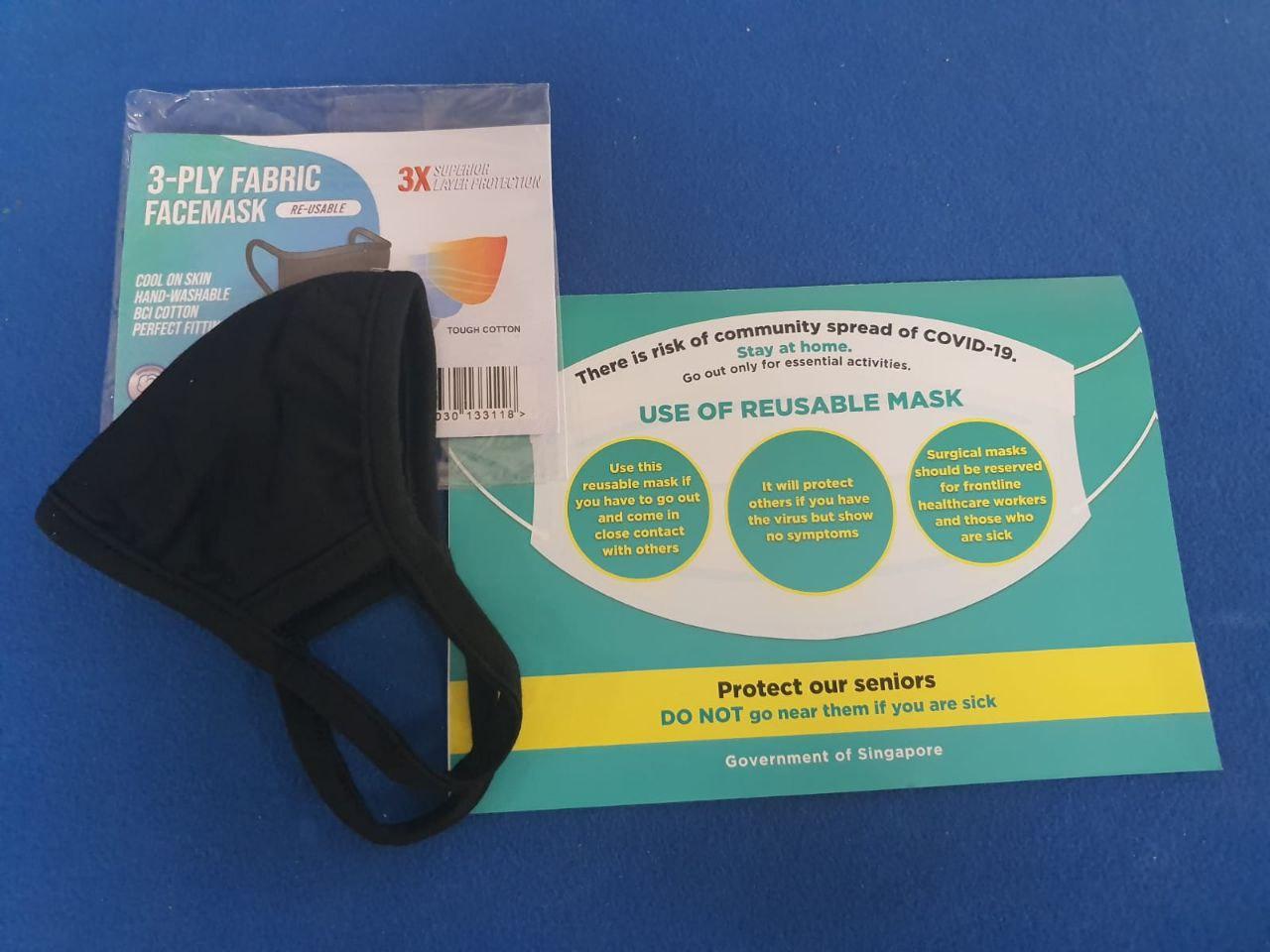
Image credit: Nirelle Goh
Since the start of the coronavirus outbreak, people have been buying masks in bulk and this was not happening only in Singapore. Because of this, the world is now facing a shortage in surgical masks.
To keep whatever supply we have for our frontliners, the government distributed masks to each household back in February. Then, came the distribution of 500ML of free hand sanitiser to save Singaporeans from empty Guardian and Watsons shelves.
Now, the government is at it again with another heroic effort. This time, distributing reusable cloth masks at designated RC centres and community clubs from now till 12th April 2020 in efforts to keep everyone protected. If you’re worried about contamination, don’t worry because these masks can be washed and dried.
6. Expulsion from uni if students breach temperature taking measures
 Daily temperature declaration platform
Daily temperature declaration platform
Image credit: National University of Singapore (NUS)
NUS is taking a strong stance against students who fail to comply with temperature taking measures and a running joke cum reminder between students is to remember to take temperature, if not kena expelled.
If students were to make a false declaration or have a weekly declaration rate lower than 70%, these sanctions would come into play:
First offenders will receive a warning letter and second offenders will not be able to view their results for one month. Repeat offenders will be suspended for a month and may risk expulsion. This may seem extreme to some, but desperate times call for desperate measures.
7. $60 billion budget to help soften blow to Singapore’s economy

To address the rapidly evolving COVID-19 situation and its impact on Singapore’s economy and society, the government has rolled out the Resilience Budget 2020.
Some schemes in the budget include the Enhance Jobs Support Scheme (JSS) and the Self-Employed Persons Income Relief Scheme (SIRS). For the JSS, the government will help employers pay 25% of the first $4,600 of monthly salaries, while the SIRS sees self-employed Singaporeans receiving $1,000 a month for 9 months.
To support households, there will be an enhanced cash payout for all Singaporeans aged 21 and above. The amount ranges from $300 to $900, depending on household income. Before you splurge on a Nintendo Switch, remember that the money is for a rainy day, so spend wisely!
In addition to this, a third round of Budget measures has recently been unveiled. The Solidarity Budget entails all Singaporean adults to receive $600 in April and the government will also increase risk share on loans to 90% to ensure credit access for firms.
COVID-19 measures
In this fight against COVID-19, it isn’t enough to just have these measures in place if nobody follows them. It’s not everyday that we can save humanity by just staying home and practicing good hygiene. So stay resilient and look out for one another – this will be over soon if everyone does their part.
To help you and others survive a change in lifestyle:




